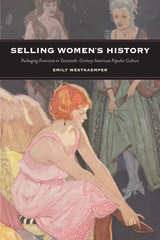Playing Smart
New York Women Writers and Modern Magazine Culture
Rutgers University Press
Smart women, sophisticated ladies, savvy writers . . . Edna St. Vincent Millay, Dorothy Parker, Anita Loos, Lois Long, Jessie Fauset, Dawn Powell, Mary McCarthy, and others imagined New York as a place where they could claim professional status, define urban independence, and shrug off confining feminine roles. It might be said that during the 1920s and 1930s these literary artists painted the town red on the pages of magazines like Vanity Fair and the New Yorker. Playing Smart, Catherine Keyser's homage to their literary genius, is a captivating celebration of their causes and careers.
Through humor writing, this "smart set" expressed both sides of the story-promoting their urbanity and wit while using irony and caricature to challenge feminine stereotypes. Their fiction raised questions about what it meant to be a woman in the public eye, how gender roles would change because men and women were working together, and how the growth of the magazine industry would affect women's relationships to their bodies and minds. Keyser provides a refreshing and informative chronicle, saluting the value of being "smart" as incisive and innovative humor showed off the wit and talent of women writers and satirized the fantasy world created by magazines.
Through humor writing, this "smart set" expressed both sides of the story-promoting their urbanity and wit while using irony and caricature to challenge feminine stereotypes. Their fiction raised questions about what it meant to be a woman in the public eye, how gender roles would change because men and women were working together, and how the growth of the magazine industry would affect women's relationships to their bodies and minds. Keyser provides a refreshing and informative chronicle, saluting the value of being "smart" as incisive and innovative humor showed off the wit and talent of women writers and satirized the fantasy world created by magazines.
With a sense of humor and style, and a smartness of her own, Keyser takes up the cause and the career of a 'smart' set of women writers who made a distinct mark on modern American culture.
Keyser's book is a pleasure to read not only because it is incisive and informative, but also because the writer's own wit is everywhere apparent. Her sparkling prose, wedding style, and critical acumen shows Keyser to be an accomplished student of the writers she studies.
It is, academically speaking, a smart book.
Keyser contributes invaluable insights into how women crafted professional and public identities in the pages of American periodicals at the turn of the twentieth century.
With a sense of humor and style, and a smartness of her own, Keyser takes up the cause and the career of a 'smart' set of women writers who made a distinct mark on modern American culture.
Keyser's book is a pleasure to read not only because it is incisive and informative, but also because the writer's own wit is everywhere apparent. Her sparkling prose, wedding style, and critical acumen shows Keyser to be an accomplished student of the writers she studies.
It is, academically speaking, a smart book.
Keyser contributes invaluable insights into how women crafted professional and public identities in the pages of American periodicals at the turn of the twentieth century.
Catherine Keyser is an assistant professor of English at the University of South Carolina.
Acknowledgments
Introduction
1. Thoroughly Modern Millay and Her Middlebrow Masquerades
2. "This Unfortunate Exterior": Dorothy Parker, the Female Body, and Strategic Doubling
3. "First Aid to Laughter": Jessie Fauset and the Racial Politics of Smartness
4. The Indestructible Glamour Girl: Dawn Powell, Celebrity, and Counterpublics
5. "Scratch a Socialist and You Find a Snob": Mary McCarthy, Irony, and Politics
Conclusion
Notes
Selected Bibliography
Index
Introduction
1. Thoroughly Modern Millay and Her Middlebrow Masquerades
2. "This Unfortunate Exterior": Dorothy Parker, the Female Body, and Strategic Doubling
3. "First Aid to Laughter": Jessie Fauset and the Racial Politics of Smartness
4. The Indestructible Glamour Girl: Dawn Powell, Celebrity, and Counterpublics
5. "Scratch a Socialist and You Find a Snob": Mary McCarthy, Irony, and Politics
Conclusion
Notes
Selected Bibliography
Index










